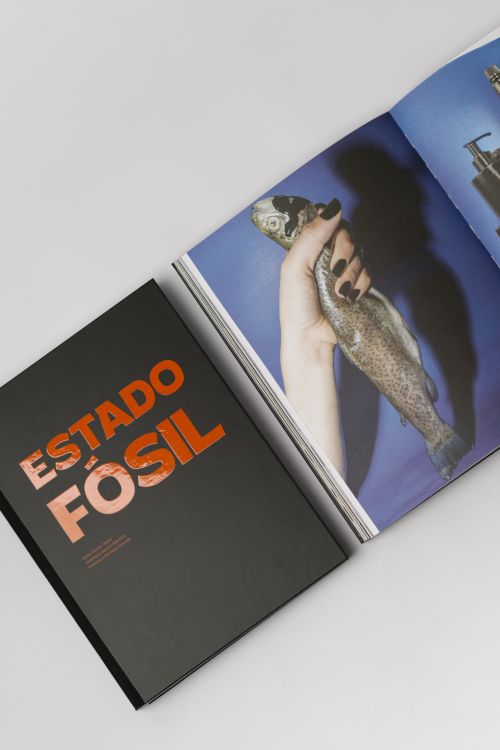Estado Fósil: Imaginaries, Conflict, and Materialities of Extractivism
Thursday, March 28, 2024, 7pmIn 2022, Ecuador commemorated the 50th anniversary of the extraction of the first barrel of oil from the Amazonia. In June of 1972, along with promises of development and progress, it began a history traversed by various forms of violence and devastation. Estado Fósil, edited by Anamaría Garzón Mantilla, Sofía Acosta, and Francisco Hurtado, presents the work of 25 Ecuadorian artists, writers, and activists who think about their relationship with oil.
Aware of the undeniable violence that extractivism generates and also of the organization and resistance of the Amazonian peoples and communities against the petrostate, the book proposes to redefine the ways in which we can analyze artistic production given our overarching relationship with oil extraction.
Join us for the book launch of Estado Fósil, and a conversation about artistic practices at the intersection of extraction in Ecuador. In the discussion, the guest speakers will raise a number of questions regarding how oil permeates the materiality of contemporary art and its relationship with the nation-building project by problematizing the relationship between the peripheries and the centers, the reiteration of utopian and dystopian imaginaries that surround promises of progress, and of course, the ontological limitations that shape the fossil state.
The conversation will be held between Anamaría Garzón Mantilla, editor of the book, who will share the critical and curatorial strategies displayed in Estado Fósil, and Diana Iturralde, who will provide a commentary about this project’s contributions to Ecuadorian visual historiography highlighting its relation to other extractive memories from this contested territory. The talk will be moderated by Canal Project’s Assistant Curator, Sara Garzón.
Anamaría Garzón Mantilla is an art historian and professor at the Universidad San Francisco de Quito USFQ. She is a doctoral candidate in the Art History and Theory program at the University of Essex. Her dissertation focuses on the study of modern art from the Andes from 1950 to 1970. Nowadays, Garzón is Helena Rubinstein Critical Studies Fellow at the Independent Study Program Independent Study Program, at the Whitney Museum of American Art. Garzón is the editorial director of post(s), an academic journal published yearly since 2015. Since 2018, she is part of Arte + Activismos, a laboratory of critical pedagogies and human rights. She is also part of the editorial project Estado Fósil, which gathers archives related to oil extraction in the Ecuadorian Amazon.
Diana Iturralde. is a Ph.D. candidate in Art History at Rutgers University. She specializes in modern to contemporary art from Latin America with an emphasis in the Andean-Amazon region. Her dissertation research examines ways in which visual representations have been strategically utilized to instill or challenge socio-environmental perceptions of the Andean-Amazon region in Ecuador and Peru from the nineteenth century to this day. She has interned at the Philadelphia Museum of Art and worked at the Institute of Studies on Latin American Art (ISLAA). She participated in the Center for Curatorial Leadership Summer Seminar 2023, and is currently enrolled in the seminar, The Amazon basin as Connecting Borderland, as part of the Getty Foundation’s Connecting Art Histories Initiative. Before starting her Ph.D., Diana completed her MA in Art History at Tyler School of Art and Architecture, Temple University in 2018.
